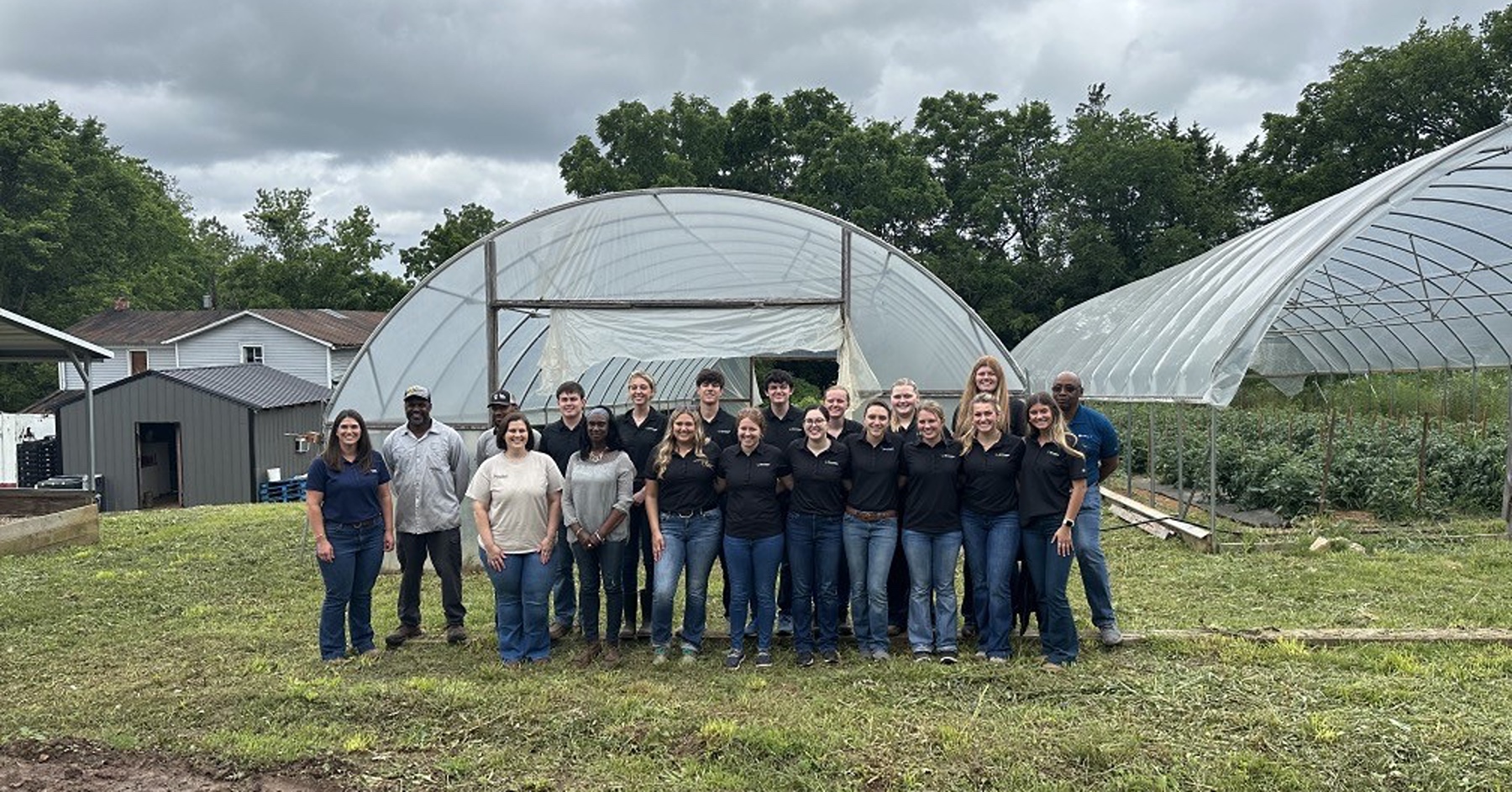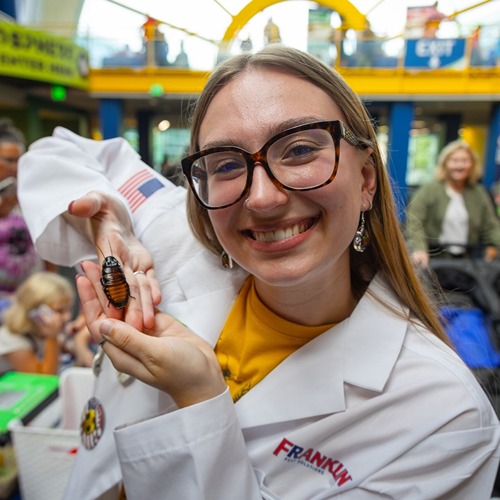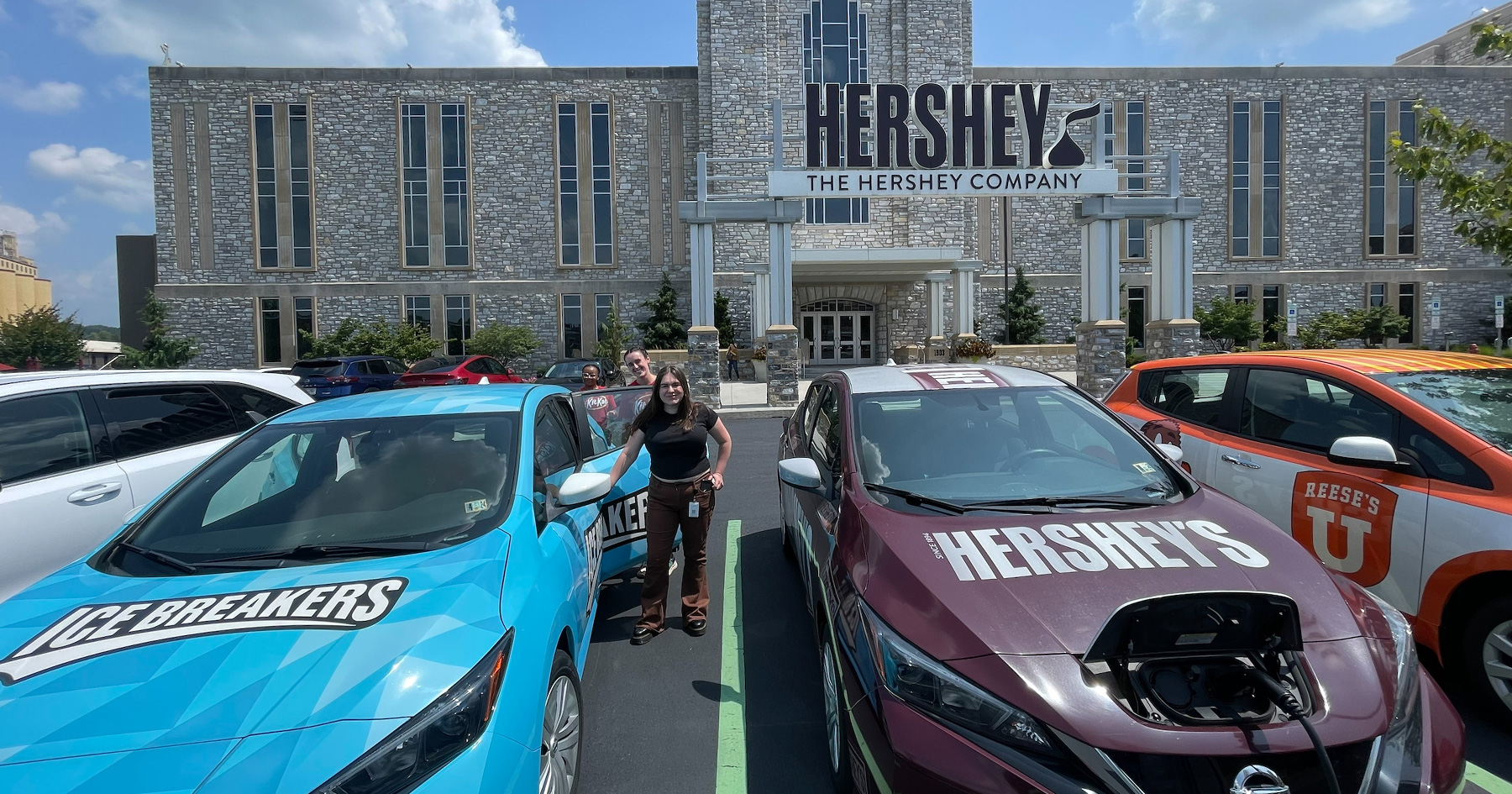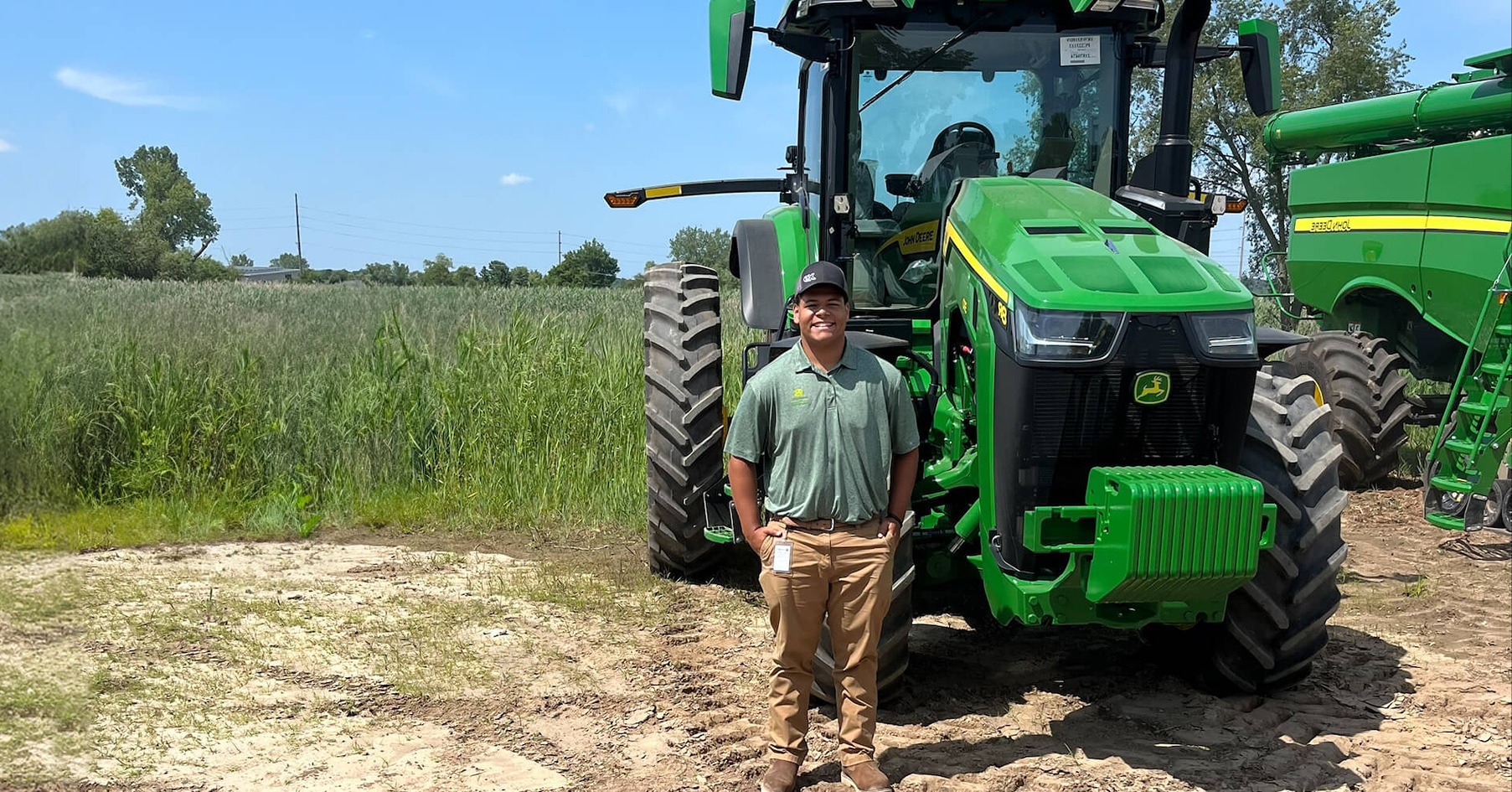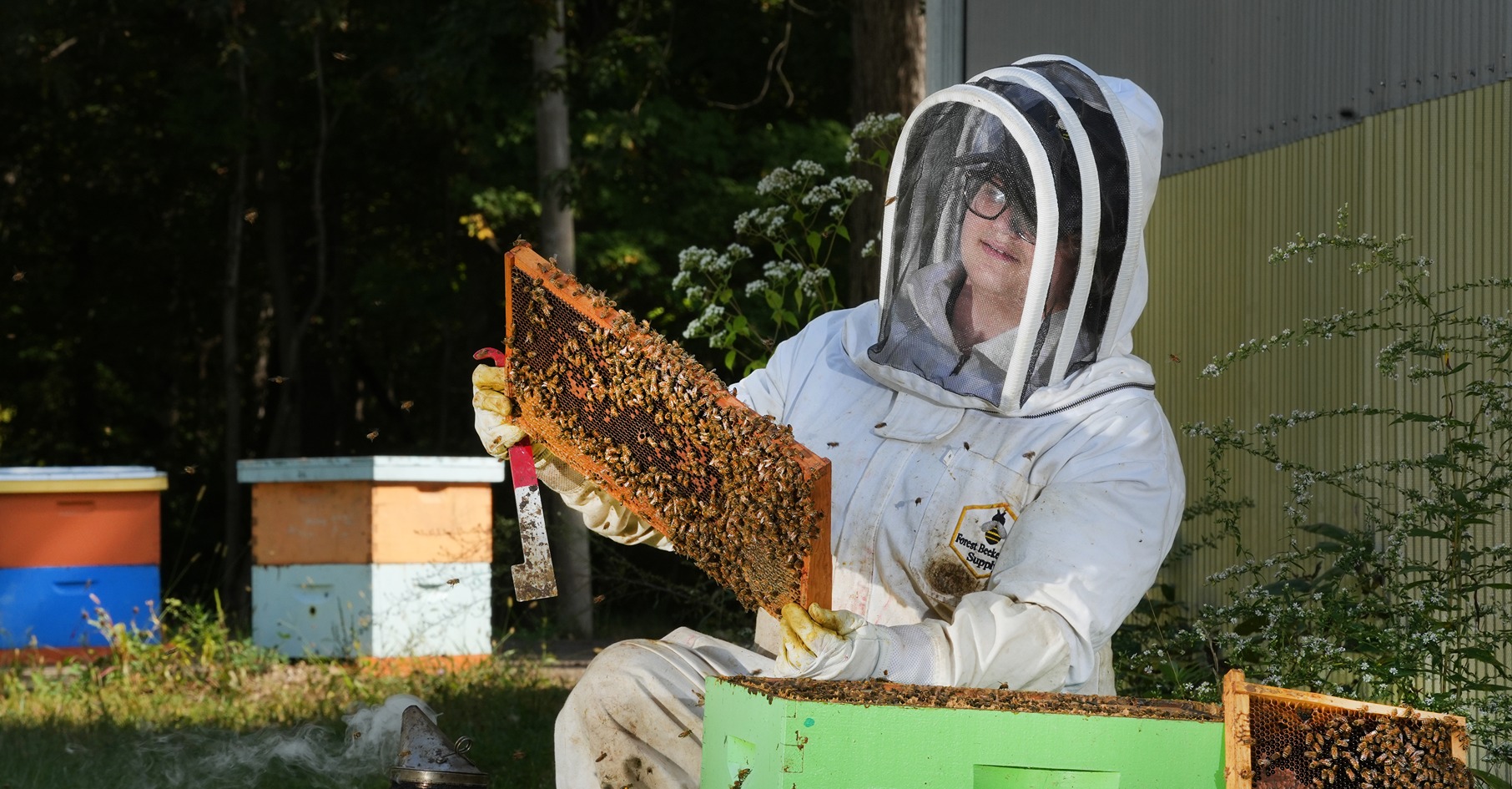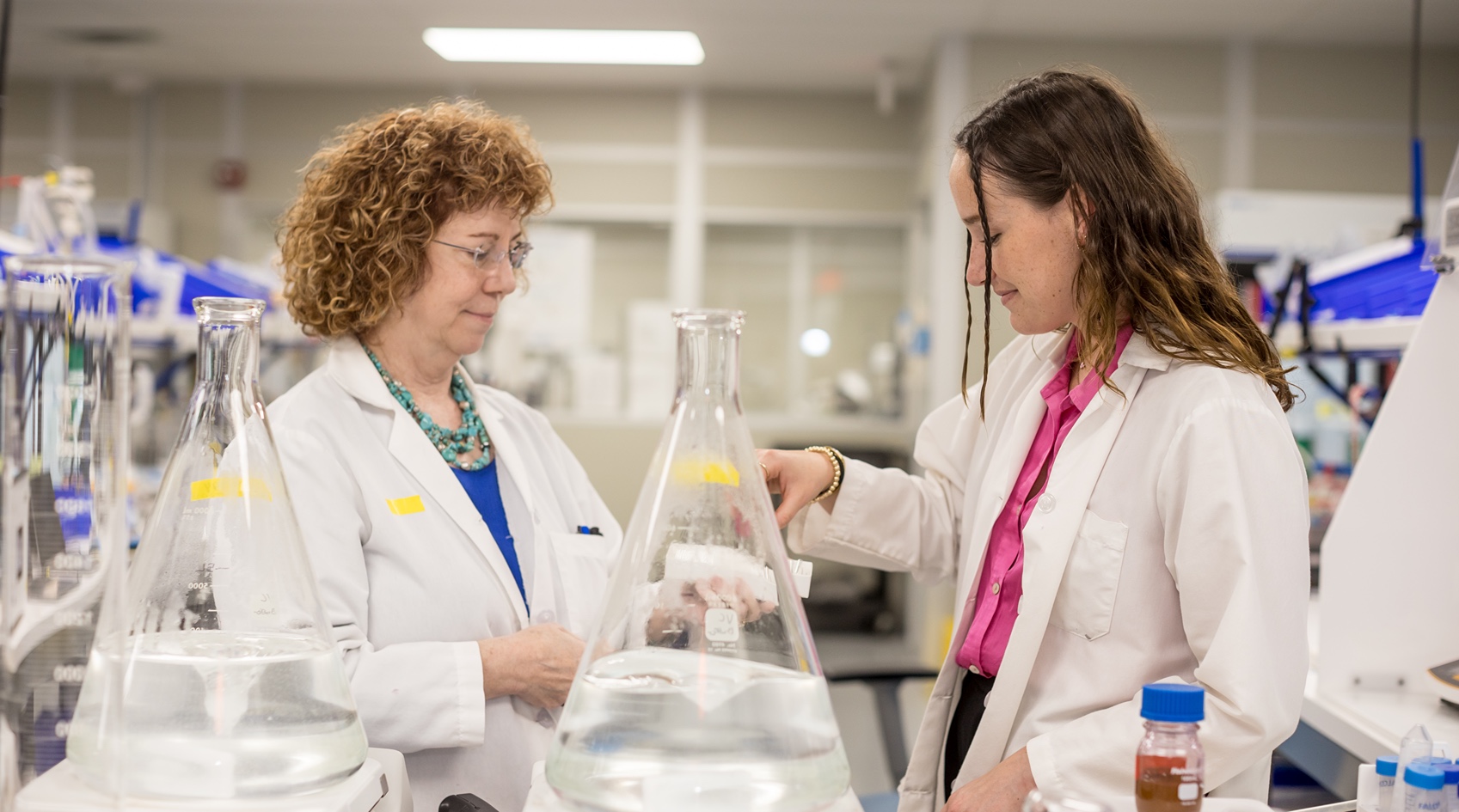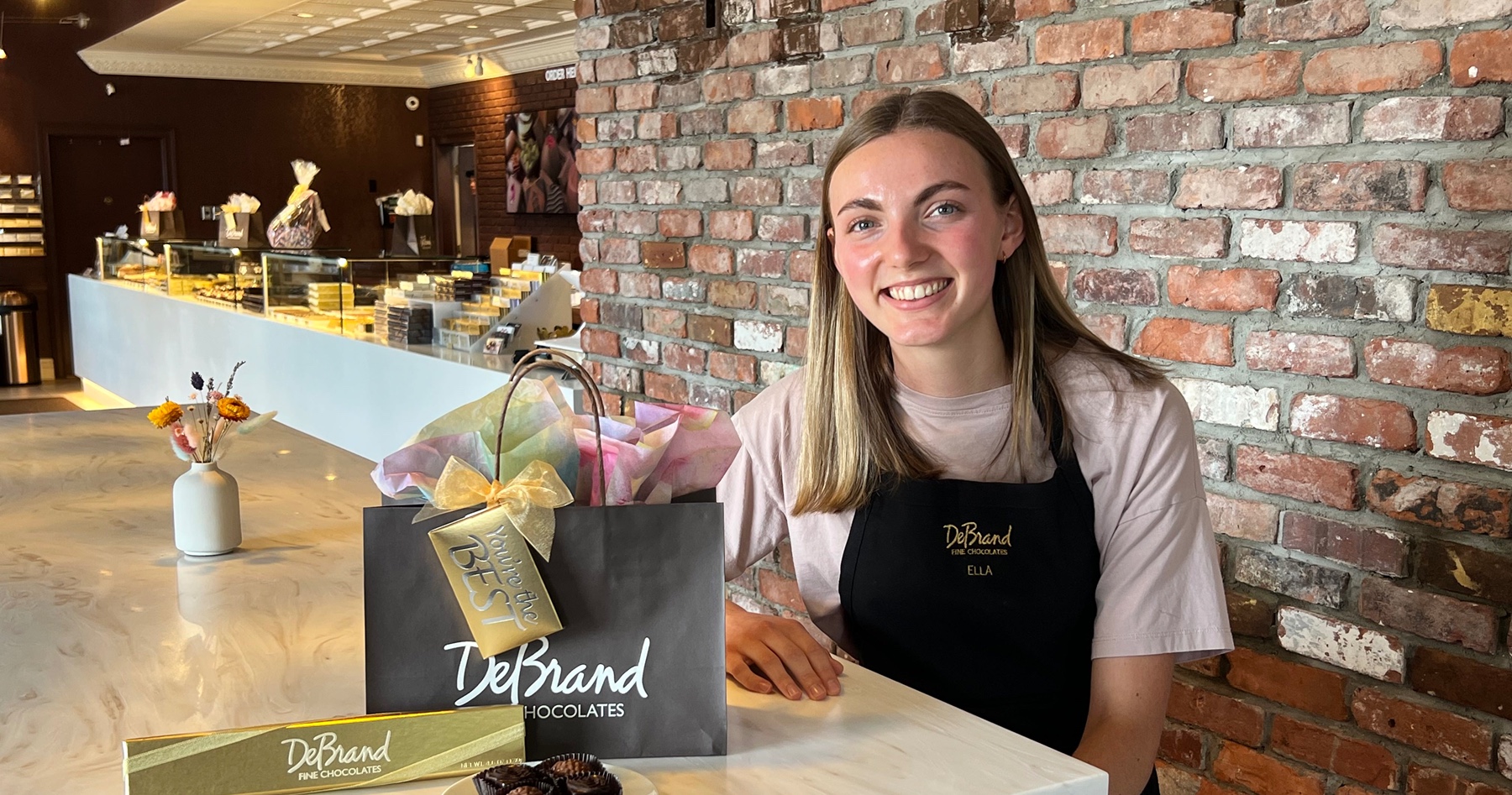Cultivating the Future: Taryn Wainscott, Jackson Lusk and Taylor Pinkerton

Though agricultural economics students Taryn Wainscott, Jackson Lusk and Taylor Pinkerton share the same major and secured summer internships at the same company, each went into the summer with different goals. And thanks to the individualized opportunities offered by Farm Credit Mid-America, their experiences were very different.
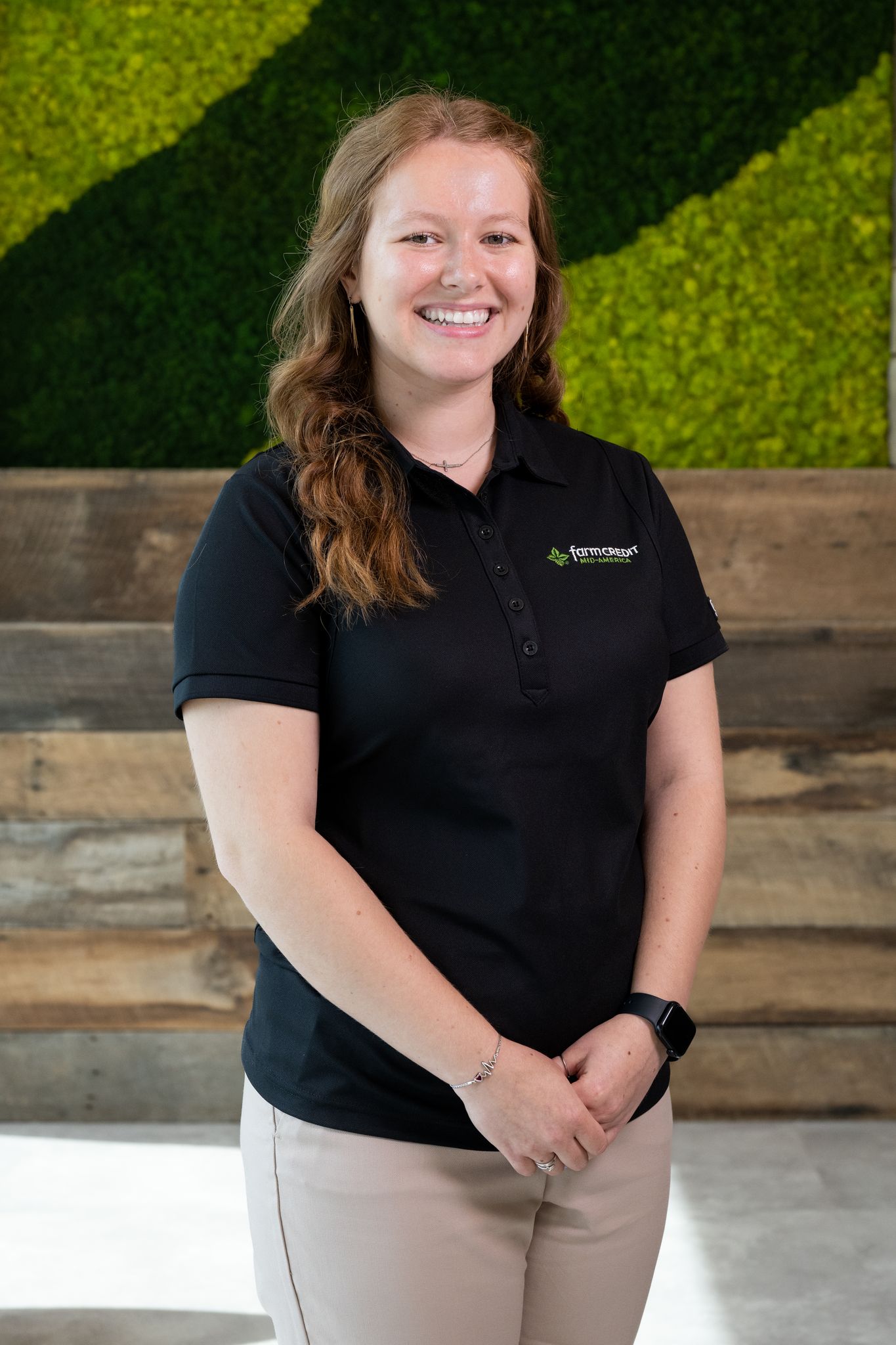 Tayrn Wainscott
Tayrn Wainscott 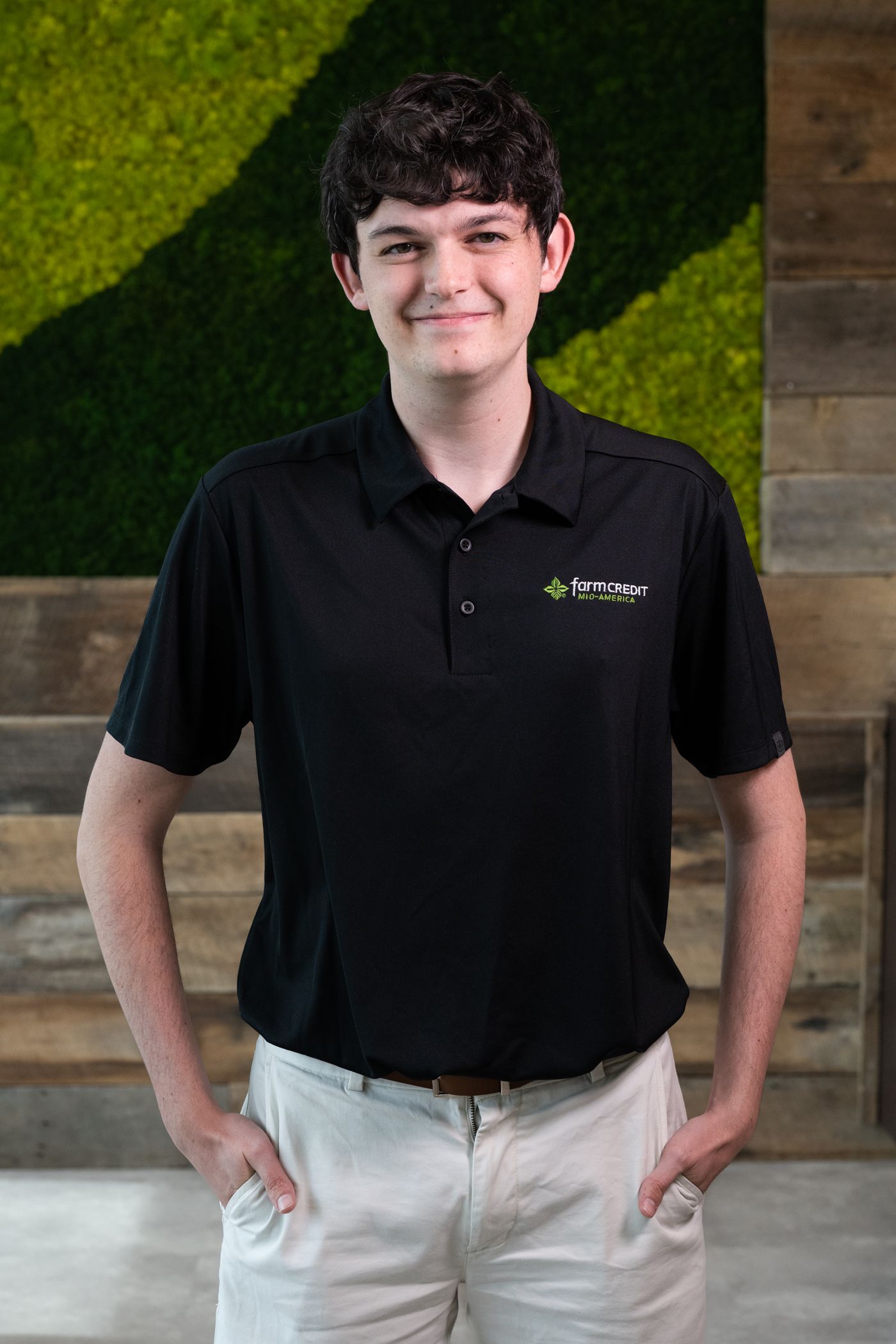 Jackson Lusk
Jackson Lusk 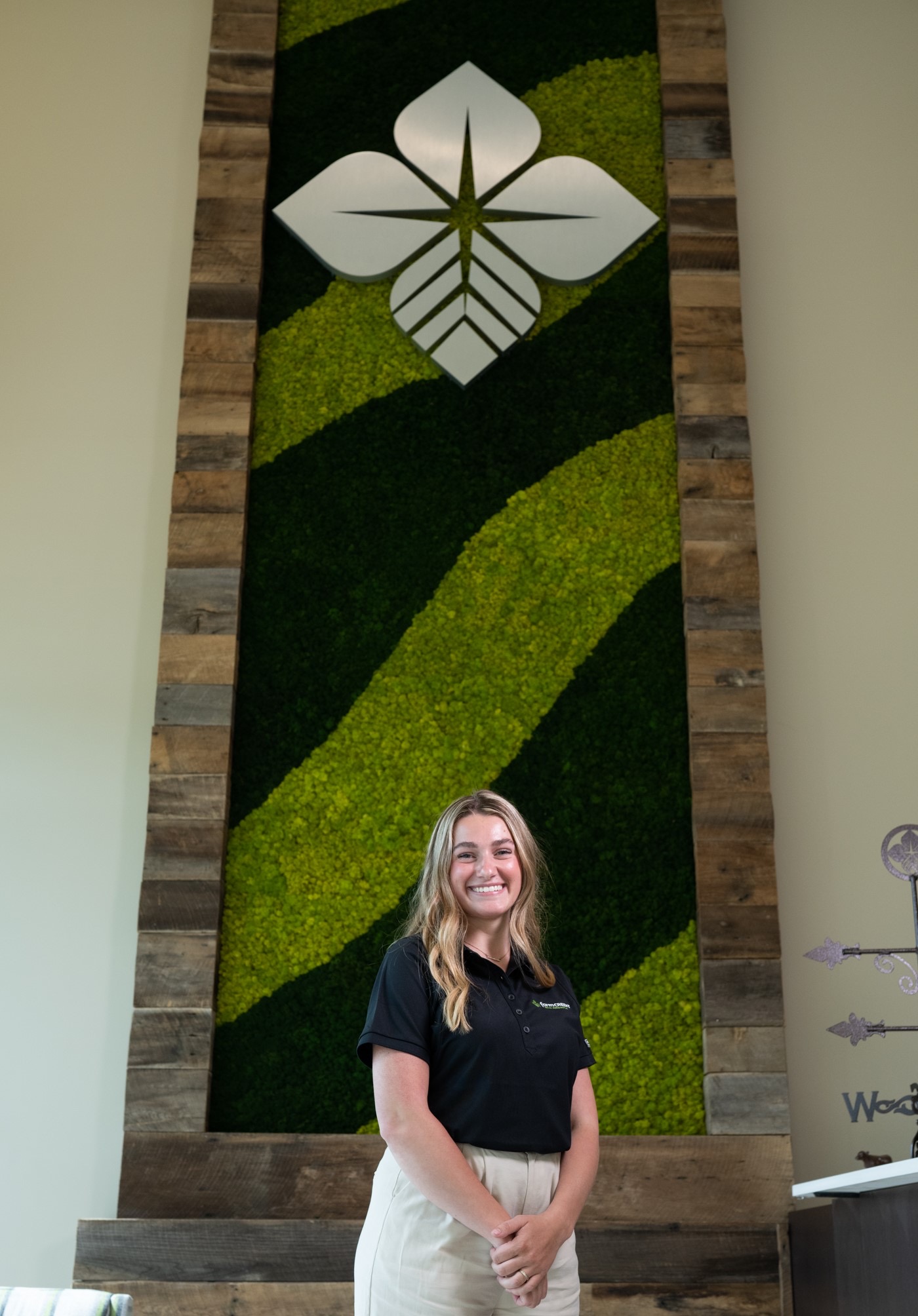 Taylor Pinkerton
Taylor Pinkerton Where are you from and what led to your decision to study agricultural economics at Purdue?
Taryn Wainscott: I grew up in Rossville, Indiana. I was involved in FFA which led to my interest in studying agriculture. Before that, my only experience with agriculture was my grandpa’s small farm. A lot of agriculture is new to me, especially livestock. I am currently an officer in the Agribusiness Club, Unhurried Club and Adopt-A-Grandparent Club. I am also on the executive board of my cooperative.
Jackson Lusk: I am from West Lafayette, so Purdue was a natural choice for me. My father has been involved in agricultural economics ever since he was young, and I was told the department has a strong community. I have had great advisors here and found an amazing peer group. I am currently the president of the Economics Club, an agricultural economics student envoy and a member of the Agricultural Economics Quiz Bowl team.
Taylor Pinkerton: My hometown is Liberty, Indiana. I grew up in a family that farms row crops and raises show cattle. I was in FFA through high school. My parents and older brother all studied agriculture at Purdue. I always knew I wanted to work in agriculture, so following in my family’s footsteps felt like the most logical choice. I love talking with people. When I decided on my major, I realized sales and marketing would give me many opportunities to do that. I plan to graduate in December.
Why did you decide to intern at Farm Credit Mid-America this summer?
Wainscott: I heard a lot of good things about Farm Credit before I started my internship. I spoke with quite a few people from the company at career fairs and ag events. I liked what I heard about their day-to-day roles. I originally applied for their agricultural lending internship but was accepted for the retail internship, which I ended up loving.
Lusk: Last summer I did an internship at Purdue in agricultural engineering. This summer I wanted to focus on data analytics. I had opportunities to work for different companies in the system, but I knew Farm Credit Mid-America has a large team with lots of high-quality data available to work with. Accepting meant I would spend my summer in Louisville, which added even more appeal.
Pinkerton: My past internships have been all over, but Farm Credit marries a lot of the things I enjoy. As I started considering full-time positions, I knew I wanted to do some good and impact the way people live. I think Farm Credit is perfect for that. We get to make dreams happen here. That has been inspiring to watch this summer.
Where are you working from and what does an average week look like for you?
Wainscott: My 10-week program started right before Memorial Day. I am working out of a retail office in Kokomo, Indiana. I visited their headquarters in Louisville, Kentucky at the beginning and middle of the internship. At the end of July, I traveled to the headquarters once more to present the project I worked on to the CEO and members of their board of directors.
When I first started, my weeks were full of meetings. Recently, I had several opportunities to travel with Farm Credit to community events.
Lusk: I lived in Louisville for the summer to work from Farm Credit Mid-America’s headquarters. I was almost always in the office, but that was largely by choice. There were opportunities to work remotely, but I knew I would get more done if I was in the office. My work week was a full 40 hours.
Pinkerton: I worked in lending, shadowing financial officers. I spent about half of my time in the office working on projects. The other half was spent on the road with the financial officers interacting with customers, doing farm calls and meeting people. I was based out of Williamsport, but each week I was in a different office in the region, which includes Kokomo, Rensselaer, Lafayette and Crawfordsville.
What have you worked on and learned during your internship?
Wainscott: I have worked on a best practice plan to see how Farm Credit can be more uniform as a company. To gather data, I had meetings with 12 groups of employees. Then, I dove into the findings to measure consistency across the organization. It helped me lay out a procedure people can refer to when they have questions.
It can be hard for a company to be uniform while remaining personable with customers. We are focused on keeping the customers at heart and we do not want to lose that, but we also need anyone who picks up a loan we are working on to understand where we left off.
Lusk: This spring, Farm Credit Mid-America merged with Farm Credit Midsouth. I focused on a large project where we analyzed the difference between Farm Credit Mid-America’s customers and the new ones we took on. The results should help the company better understand and market to the customers.
I learned so much this summer. My project was about a type of analytics called clustering, which is essentially looking at customers in groups. I knew very little about it before. I also only had a vague understanding of how to use the programming language Python. Through my work, I am now much more comfortable with it.
Pinkerton: I had never worked a nine-to-five job before this, so a big development for me was understanding the feel of a traditional work week. I wanted to gain experience, learn what financial officers do and see the impact of finances on agriculture and farming families. I also made it a priority to connect with as many people at Farm Credit as I could. It was fantastic.
My main project focused on non-ag loan opportunities, including customers that may not fit the mold of a full-time farmer. I helped Farm Credit understand how we can serve them and support those customers as they diversify their portfolios to solidify their future.
How has your internship impacted you or your future?
Wainscott: Meeting with people from various roles and learning about the company from their perspectives helped me grow. I now see how diverse organizations can be and better understand the possibilities for my future. Since my internship was not customer focused, I realized how much I missed working with customers. Traveling to offices, meeting with people and sitting in on calls with them appeals to me. While I am not sure where I will end up yet, I hope to work with customers, specifically in finance.
Lusk: I would like to go to grad school, and Farm Credit made me more prepared. The programming languages students are exposed to usually depend on the classes they take, so learning Python was a great opportunity. Before the summer I did not have a clear top choice for the department I wanted to work in, but now I think I want to do modeling in risk. One day I sat down and talked with people in similar positions. The work they do sounded amazing and included all the things I want to do.
Pinkerton: I probably should have expected it, but my internship gave me a lot more financial experience than I anticipated. I now have a better understanding of how to be financially responsible as I prepare to graduate college. Looking at balance sheets, examining income tax returns and keeping records taught me how to better manage myself and, potentially, a business. After I graduate this December, I hope to start a full-time position at Farm Credit and help them continue making positive differences in people’s lives.

